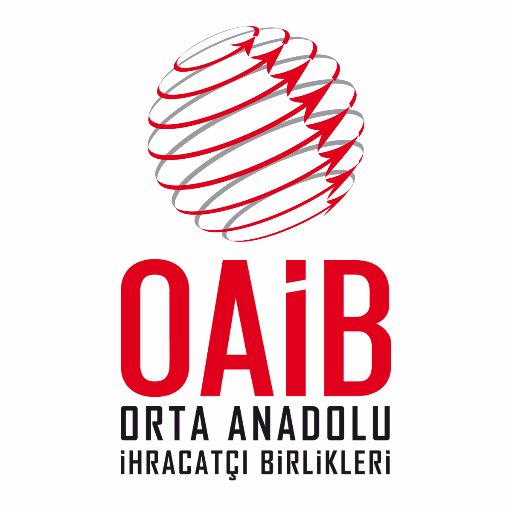Middle Management: A Vital Link In Achieving Organizational Goals And Employee Fulfillment

Table of Contents
The Crucial Role of Middle Management in Bridging the Gap
Middle managers act as a critical bridge, facilitating communication and collaboration between upper management and frontline employees. This "bridge the gap" function is essential for successful strategy implementation. They translate high-level strategic goals into actionable plans for their departments, ensuring everyone understands their role in achieving the overall vision. This top-down communication is only half the equation; equally crucial is the bottom-up feedback loop. Middle managers gather insights from their teams, identifying challenges, bottlenecks, and opportunities for improvement, relaying this vital information back to senior leadership. This bidirectional communication stream ensures that strategies remain relevant and adaptable to the ground realities.
- Translating company strategy into departmental goals: Middle managers break down complex strategic objectives into smaller, manageable goals that are relevant to their teams.
- Communicating expectations effectively to teams: Clear and consistent communication ensures everyone is working towards the same objectives.
- Gathering feedback from employees and relaying it to senior management: This ensures that senior management has a realistic understanding of the challenges faced by the workforce.
- Identifying and addressing obstacles to progress: Middle managers act as problem-solvers, identifying and addressing roadblocks to achieving organizational goals.
- Ensuring consistent implementation of company policies: They ensure that company-wide policies are understood and followed at the departmental level.
Fostering Employee Engagement and Fulfillment Through Effective Middle Management
Effective middle management plays a critical role in fostering a positive work environment and driving employee engagement. This goes beyond simply assigning tasks; it involves cultivating a culture of recognition, support, and development. Middle managers who prioritize open communication, provide regular feedback, and offer mentorship opportunities foster a sense of belonging and purpose among their team members. By addressing employee concerns promptly and proactively, and promoting work-life balance, they create an environment where employees feel valued and respected. This, in turn, translates to increased employee fulfillment and higher retention rates.
- Creating a positive and supportive team environment: A positive work environment fosters collaboration and boosts morale.
- Providing regular feedback and recognition to employees: Regular feedback helps employees understand their strengths and areas for improvement. Recognition motivates and reinforces positive behaviors.
- Offering mentorship and coaching opportunities: Investing in employee development enhances skills and career progression, leading to increased job satisfaction.
- Identifying and addressing employee concerns: Addressing concerns quickly and effectively prevents small issues from escalating into larger problems.
- Promoting work-life balance and employee well-being: Supporting employee well-being fosters loyalty and productivity.
- Facilitating professional development opportunities: Providing opportunities for growth and learning demonstrates a commitment to employee development.
Optimizing Performance and Productivity Through Strategic Middle Management
High-performing middle managers are masters of strategic resource allocation, delegation, and performance management. They set clear, achievable goals for their teams, ensuring everyone understands their individual contributions to the overall objective. Effective delegation, coupled with regular monitoring and support, optimizes efficiency and productivity. They also play a crucial role in resolving conflicts, fostering positive team dynamics, and implementing effective performance management systems. By identifying and implementing process improvements, they continuously enhance the overall effectiveness of their teams.
- Setting clear and achievable goals for teams: Clear goals provide direction and motivation.
- Effectively delegating tasks and responsibilities: Delegation allows middle managers to focus on strategic initiatives while empowering their team members.
- Optimizing resource allocation to enhance productivity: Efficient resource allocation prevents bottlenecks and maximizes output.
- Resolving conflicts and fostering positive team dynamics: Positive team dynamics increase collaboration and productivity.
- Implementing effective performance management systems: Regular performance reviews provide feedback and identify areas for improvement.
- Identifying and implementing process improvements: Continuous improvement efforts streamline workflows and increase efficiency.
The Challenges Faced by Middle Management and Strategies for Success
The role of middle management is not without its challenges. They often face conflicting demands from upper management and their teams, limited resources, and immense pressure to meet expectations. This can lead to burnout and stress. However, investing in leadership development programs, providing adequate support, and implementing effective stress management techniques can equip middle managers to navigate these challenges successfully. Organizations must recognize the importance of supporting their middle management teams to prevent burnout and ensure their continued effectiveness.
- Balancing competing priorities and demands: Effective prioritization and time management skills are essential.
- Managing limited resources effectively: Resourcefulness and strategic allocation are key.
- Dealing with conflicting personalities and perspectives: Strong communication and conflict resolution skills are critical.
- Managing stress and avoiding burnout: Organizations should prioritize employee well-being and offer support.
- Advocating for their teams and employees: Middle managers are the voice of their teams to senior management.
- Adapting to change and uncertainty: Flexibility and adaptability are key skills in today's dynamic environment.
Conclusion
Middle management is undeniably vital to organizational success and employee fulfillment. They are not just cogs in the machine; they are the engine that drives performance and engagement. By investing in their development, providing adequate support, and fostering open communication, organizations can unlock the full potential of their middle management teams. Effective middle management strategies result in a stronger, more productive workforce, improved employee retention, and the achievement of organizational goals. Invest in your middle management team to unlock the full potential of your organization and foster employee fulfillment. Develop strong middle management strategies for a more successful future!

Featured Posts
-
 The Carrie Underwood Taylor Swift Conflict Uncovering The Hidden Details
May 27, 2025
The Carrie Underwood Taylor Swift Conflict Uncovering The Hidden Details
May 27, 2025 -
 Fiyat Istikrari Icin Ecb Nin Plani Lagarde Den Son Degerlendirmeler
May 27, 2025
Fiyat Istikrari Icin Ecb Nin Plani Lagarde Den Son Degerlendirmeler
May 27, 2025 -
 Ecb Baskani Lagarde Fiyat Istikrari Odak Noktasi
May 27, 2025
Ecb Baskani Lagarde Fiyat Istikrari Odak Noktasi
May 27, 2025 -
 Trump Doenemi Politikalari Tuerkiye Icin Riskler Ve Firsatlar
May 27, 2025
Trump Doenemi Politikalari Tuerkiye Icin Riskler Ve Firsatlar
May 27, 2025 -
 How To Stream Survivor Season 48 Finale Tonight Free Options Included
May 27, 2025
How To Stream Survivor Season 48 Finale Tonight Free Options Included
May 27, 2025
Latest Posts
-
 Jon Joness 29 Million Demand A Ufc Veterans Take On Dana Whites Next Move
May 30, 2025
Jon Joness 29 Million Demand A Ufc Veterans Take On Dana Whites Next Move
May 30, 2025 -
 Jon Jones Next Fight Diaz Confirmed Aspinall Speculation Ends
May 30, 2025
Jon Jones Next Fight Diaz Confirmed Aspinall Speculation Ends
May 30, 2025 -
 Jon Jones Vs Nate Diaz Ufc Legend Chooses Diaz Over Aspinall
May 30, 2025
Jon Jones Vs Nate Diaz Ufc Legend Chooses Diaz Over Aspinall
May 30, 2025 -
 Paddy Pimbletts Heavyweight Prediction Jones Vs Aspinall
May 30, 2025
Paddy Pimbletts Heavyweight Prediction Jones Vs Aspinall
May 30, 2025 -
 Jon Jones Faces Aspinall Knockout Risk Highlighted
May 30, 2025
Jon Jones Faces Aspinall Knockout Risk Highlighted
May 30, 2025
